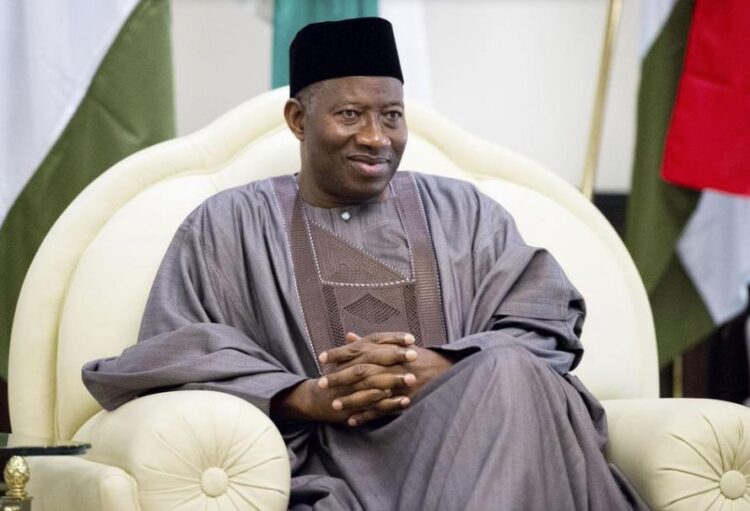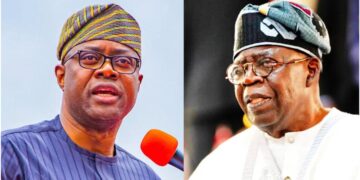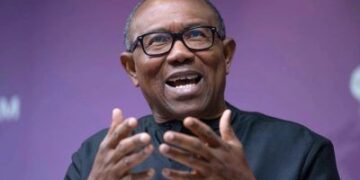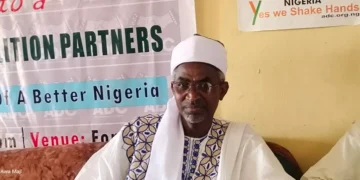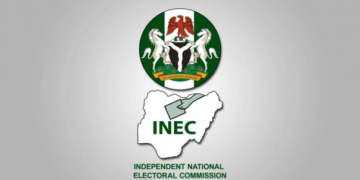A legal action has been filed before the Federal High Court in Abuja seeking to stop former President Goodluck Jonathan from contesting the 2027 presidential election.
The suit, marked FHC/ABJ/CS/2102/2025, was instituted by Abuja-based lawyer Johnmary Chukwukasi Jideobi, who urged the court to declare Jonathan constitutionally ineligible to seek the presidency again.
Plaintiff Seeks Perpetual Injunction
In his originating summons, Jideobi asked the court to issue a perpetual injunction restraining Jonathan from presenting himself to any political party for nomination in the 2027 election or any subsequent poll.
He also requested an order directing the Independent National Electoral Commission (INEC) not to accept or publish Jonathan’s name as a candidate of any political party, and another compelling the Attorney General of the Federation (AGF) to enforce any order the court may issue.
INEC and the AGF were listed as the second and third defendants in the case.
The plaintiff raised a key constitutional question: whether, under Sections 1(1–3) and 137(3) of the 1999 Constitution (as amended), Jonathan remains eligible to contest for the presidency.
Jideobi argued that Jonathan, having completed the tenure of the late President Umaru Musa Yar’Adua in 2010 and subsequently served a full four-year term after winning the 2011 election, had already reached the constitutional two-term limit.
In an affidavit sworn to by Emmanuel Agida, the lawyer described himself as an advocate of constitutionalism acting in the public interest to prevent what he called a potential “breach of the Constitution.”
Section 137(3) and Its Implications
He noted that Jonathan was first sworn in on May 6, 2010, after Yar’Adua’s death, and again on May 29, 2011, following his own electoral victory.
According to Jideobi, a third swearing-in would violate Section 137(3) of the Constitution, which provides that “a person who was sworn in to complete the term for which another person was elected as President shall not be elected to such office for more than a single term.”
That constitutional provision was introduced in the Fourth Alteration (2018) to address controversies over presidential term limits and succession.
Jideobi argued that allowing Jonathan to contest again would amount to taking the oath of office for a third time, an act he said would undermine the Constitution and extend tenure unconstitutionally.
No date has been fixed for the hearing.
Jonathan handed over to President Muhammadu Buhari in May 2015 after losing his re-election bid.
If the Federal High Court upholds Jideobi’s interpretation, the ruling could redefine how Nigeria’s two-term limit applies to presidents who first assumed office mid-term.
Earlier, Festus Keyamo, Minister of Aviation and Aerospace Development, warned that the People’s Democratic Party (PDP) could risk disqualification if it fields Jonathan as its presidential candidate in 2027.
In an August 31 post on X (formerly Twitter), Keyamo, a Senior Advocate of Nigeria, cited Section 137(3) of the Constitution and noted that lawmakers enacted the provision after the 2015 court judgment that allowed Jonathan to run at the time.
“The PDP risks not having a valid candidate at all if it fields Jonathan, by virtue of Section 137(3) of the 1999 Constitution (Fourth Amendment),” Keyamo wrote. “The constitutional amendment came after the 2015 judgment, so the matter remains unsettled. Hence, I use the word ‘risk’ advisedly.”


